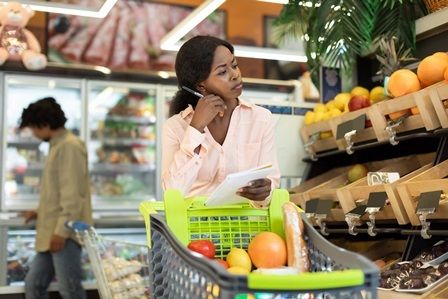
Consumer giants risk pricing themselves out of the market
Further price increases will erode firms’ market share and profit margins, investors warn
Consumer goods companies such as P&G, Unilever and Nestle should start easing price increases as supply chain costs decline, according to investors who are concerned that further hikes could hit market share and margin growth.
The makers of products ranging from soap and ice cream to condoms and cleaning products have raised prices relentlessly, saying they need to keep up with soaring costs. The Ukraine war made energy and other commodities even more expensive than they were during the pandemic, prompting a global cost-of-living crisis.
But raising prices has in some cases come at the cost of big packaged goods companies ceding market share to cheaper brands and retailers’ private label products, and led to lower sales volumes. It has also soured relationships with supermarkets, resulting in products being taken off shelves.
Eurozone retail sales have been weak all year, underlining tepid consumer demand. Similarly, US retail sales fell more than expected in March as consumers cut back on purchases of big-ticket items, suggesting that the economy was losing steam at the end of the first quarter.
P&G reports quarterly earnings on Friday, while Nestle, Durex-maker Reckitt, and Unilever will do so next week. “What have [price hikes] done to volumes and thus to margins? What has that done to their market share as competitors may be pricing lower and gaining share?” said Tineke Frikkee, a fund manager at Waverton Asset Management, which is invested in Unilever and Reckitt.
“Price rises should gradually decelerate as input costs do the same,” Frikkee said, adding that companies should instead be investing in product innovation.
Gas prices have fallen from their peak last June, and companies, including Unilever admitted in February that the industry was past “peak inflation, but not yet past peak pricing”.
Andrew Choi, a portfolio manager at San Francisco-based Parnassus Investments, expects P&G will push for further price hikes on its strongest brands, such as Tide laundry detergent, but hold back in more commoditised categories such as toilet paper and paper towels.
“Staples companies are getting pressure to ease up on price increases because it hurts retailers, and some retailers have a lot of leverage,” Choi said.
A P&G executive said at an investor conference in February that each pricing decision becomes more difficult as inflation persists.
“I still expect pricing to be the strong driver to the top line growth,” said Gretchen Novak, senior portfolio manager at Charles Schwab. Consumer goods companies would be coming up “against increasing prices from a year ago so I think it will moderate from that point”.
“It will be a delicate balance, with consumer disposable income stretched in many key markets for these firms,” said Jack Martin, a fund manager at Oberon Investments, which invests in Unilever. “Investors will be focused on forward guidance on pricing particularly during these earnings.
“As with 2022, it is likely to be a challenging year for much of the sector.”
Reuters
News Category
- International retailers
- On the move
- Awards and achievements
- Legislation
- Wine and liquor
- Africa
- Going green
- Supplier news
- Research tools
- Retailer trading results
- Supply chain
- Innovation and technology
- Economic factors
- Crime and security
- Store Openings
- Marketing and Promotions
- Social Responsibility
- Brand Press Office
Related Articles

Empowering South African households through gro...

SPAR shares practical tips to beat food inflation

South African motorists could be paying up to R...

Big VAT changes on the cards


